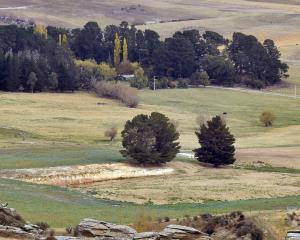The World Health Organisation has estimated that over 21,000 plant species are used for medicinal purposes, but only 100 of these are specifically grown for the pharmaceutical industry.
Other medical plant species not directly grown for pharma may be grown for functional foods, food additives or for traditional medicine purposes.
The race to find new medical compounds and extracts from plants is truly international and very big players are involved. New Zealand is in the race and a recent discovery by the University of Otago and Plant and Food Research of a natural extract from the dahlia plant with potential to prevent diabetes is an example.
A New Zealand commercial plant-related success story is that of manuka honey. Manuka honey has scientifically proven health properties related to the main active component, methylglyoxyl (MGO), which gives manuka honey its unique manuka factor (UMF) activity.
The New Zealand honey industry has tripled in size in the past five years on the back of this. Despite the challenges of scaling an industry, managing regulations and trademarks, Manuka honey is a success story and many land owners would love to see other such opportunities in the pipeline.
We are an island nation, at the bottom of the world. This means we have unique native plant species to explore, but we also have commonly grown plant species that have unique properties when grown here. This is largely due to the big hole in the ozone layer above us, which means our plants have to survive under unusually high UV-B light levels.
Plants throughout the plant kingdom have been said to face the dilemma: to grow or defend. In response to high UV-B light, New Zealand plants have to put greater energies into defence, which means they produce more compounds to protect themselves.
This means that we have ''some of the most bio-actively rich and nutritionally dense produce in the world,'' according to a report by New Zealand Trade and Enterprise: ''Hole in ozone boosts health properties of New Zealand plants.'' Some of these enhanced compounds include: flavonoids, stilbenes, phenolics, alkaloids, melatonin, vitamin D, essential oils and phytoestrogens. These types of compounds are of value for developing functional foods or medicines with anti-oxidant, anti-cancer, anti-inflammatory, anti-microbial and other health-promoting properties.
A slight segue, I have been told that New Zealand produces some of the ''strongest weed in the world'' - marijuana that is!
The cannabinoids which are useful for recreation or medical purposes, tetrahydrocannabinol (THC) and cannabidiol (CBD), are secondary metabolites produced for defence by Cannabis sativa. Our ozone hole has the unexpected impact of making New Zealand-grown marijuana more potent, but on the flip-side, when such plants are bred and grown for medical uses (when the ratio of CBD:THC is high), this could lead to New Zealand-grown Cannabis sativa having medical properties different from those plants grown internationally.
Similarly, green tea produced from the plant, Camellia sinensis, is high in polyphenols, which have antioxidant properties and are thought to be responsible for the cancer-preventive effects observed in lab and epidemiological studies.
I have been told that green tea in New Zealand has higher levels of such anti-oxidants. I am sure we should be making more of these opportunities.
If you are ever near Hamilton, take some time to visit the Zealong Tea Estate, a fabulous experience and an example of a New Zealand tea producer targeting luxury Asian tea markets.
There is overwhelming belief in agricultural circles that New Zealand must move towards adding value to our export products, pricing well above commodity markets. Too often that argument and associated research and development is focused only on our traditional livestock products. In saying that, we cannot compete internationally in commodity fruit, vegetable and cropping, either.
In the plant world, our focus needs to be on researching, commercialising and growing niche plants of high value. Care to grow cannabis anyone, or simply a pipe dream?
-Anna Campbell is managing director of AbacusBio Ltd, a Dunedin-based agri-technology company.











